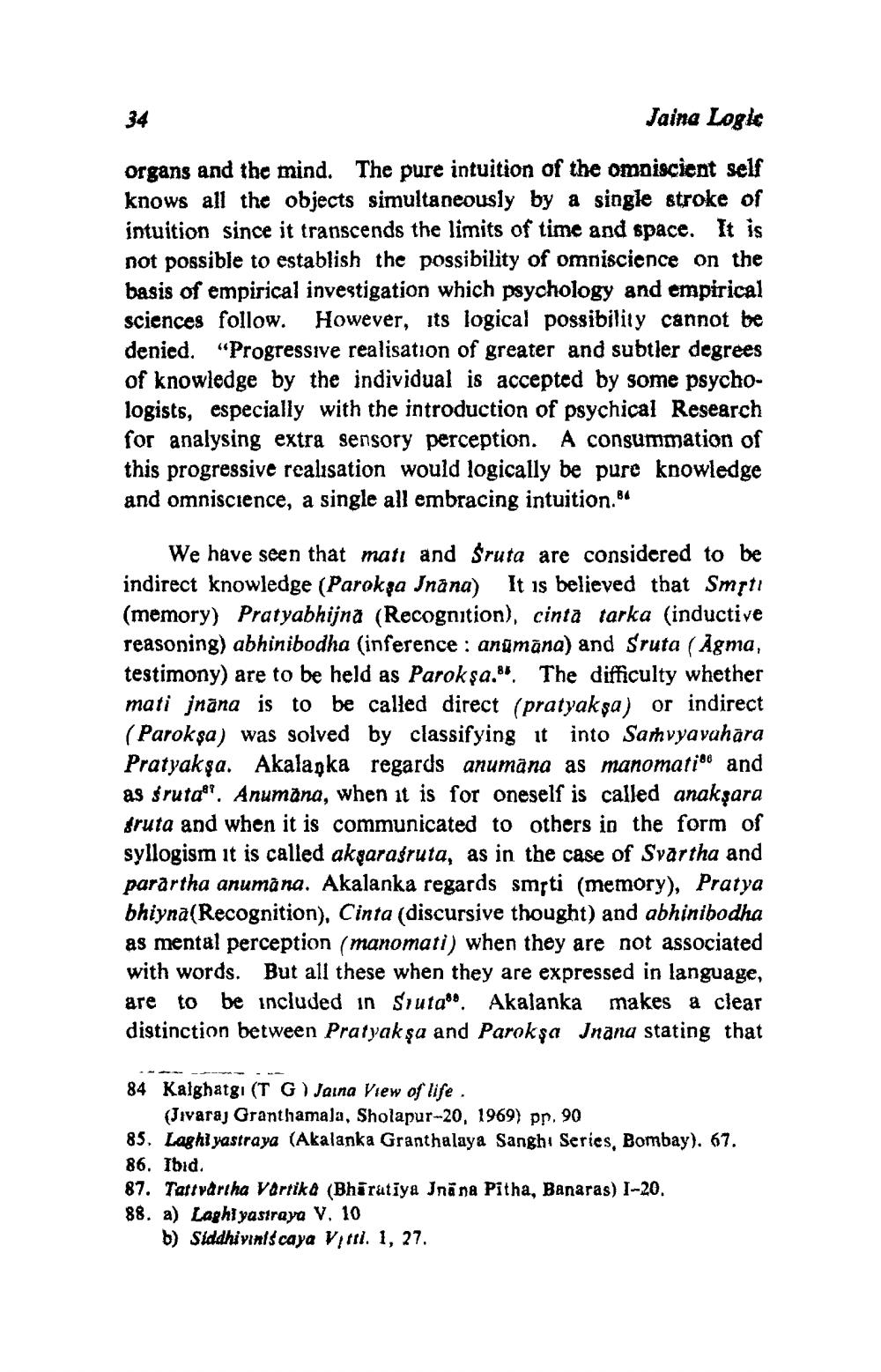________________
Jaina Logle
organs and the mind. The pure intuition of the omniscient self knows all the objects simultaneously by a single stroke of intuition since it transcends the limits of time and space. It is not possible to establish the possibility of omniscience on the basis of empirical investigation which psychology and empirical sciences follow. However, its logical possibility cannot be denied. "Progressive realisation of greater and subtler degrees of knowledge by the individual is accepted by some psychologists, especially with the introduction of psychical Research for analysing extra sensory perception. A consummation of this progressive realisation would logically be pure knowledge and omniscience, a single all embracing intuition."
We have seen that matı and Śruta are considered to be indirect knowledge (Parokşa Jnana) It is believed that Smsti (memory) Pratyabhijna (Recognition), cinta tarka (inductive reasoning) abhinibodha (inference : anomāna) and Sruta (Agma, testimony) are to be held as Parok şa.8" The difficulty whether mati jnana is to be called direct (pratyaksa) or indirect (Parok sа) was solved by classifying it into Samvyavahara Pratyakşa. Akala ka regards anumana as manomatio and as frutar. Anumana, when it is for oneself is called anakşara sruta and when it is communicated to others in the form of syllogism it is called akşarasruta, as in the case of Svartha and parartha anumana. Akalanka regards smrti (memory), Pratya bhiyna(Recognition), Cinta (discursive thought) and abhinibodha as mental perception (manomati) when they are not associated with words. But all these when they are expressed in language, are to be included in Sruta. Akalanka makes a clear distinction between Pratyakşa and Paroksa Jnana stating that
84 Kalghatgi (T G Jaina View of life.
(Jivaraj Granthamala, Sholapur-20, 1969) pr. 90 85. Laghi yastraya (Akalanka Granthalaya Sangh Series, Bombay). 67. 86. Ibid. 87. Tarivartha Vartika (Bhiratiya Jnana Pitha, Banaras) I-20. 88. a) Laghi yasiraya V. 10
b) Siddhiviniscaya Viol. 1, 27.




